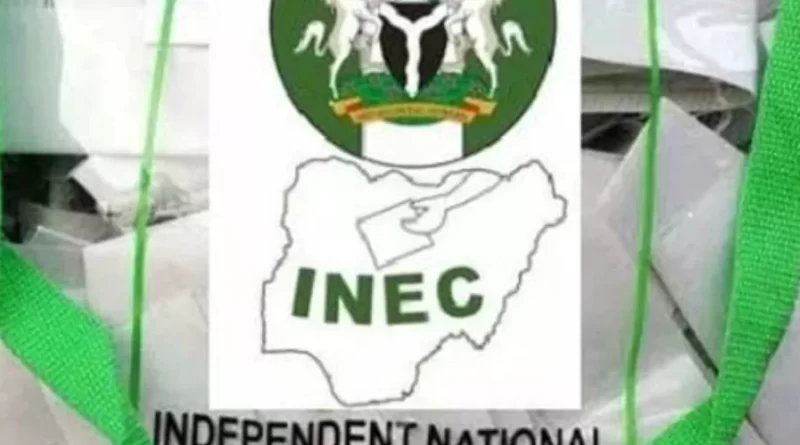Anambra guber: EU-SDGN partners urge INEC to take action against electoral malpractice
Ahead of the November 8, 2025, Anambra State governorship election, the European Union Support to Democratic Governance in Nigeria Phase II (EU-SDGN II) implementing partners have called on the Independent National Electoral Commission (INEC), the Nigeria Police, and the Economic and Financial Crimes Commission (EFCC) to enforce penalties against vote-buying and other electoral offences.
Lanre Arogundade, executive director of the International Press Centre (IPC), made the call at a media briefing in Abuja on behalf of 16 civil society organisations (CSOs), urging INEC to take action against electoral malpractice.
The appeal coincides with a surge of over 168,000 newly registered voters in the state. It followed the release of the Joint EU-SDGN II Partners’ Pre-Election Assessment Report, which provides an overview of Anambra’s pre-election environment, highlighting both progress and ongoing challenges.
According to the report, between June and September 2025, voter registration increased among women and youth, and 86% of surveyed persons with disabilities (PWDs) had collected their Permanent Voter Cards (PVCs).
Arogundade emphasised that enforcing sanctions against vote-buying is critical to restoring public confidence in the electoral system.
“Enforcing penalties for vote-buying and other electoral crimes is central to restoring citizens’ trust in our elections. We call on INEC, security agencies, and the EFCC to be proactive in detecting and apprehending offenders during campaigns and on election day,” he said.
The pre-election assessment evaluated Anambra’s political climate, institutional preparedness, and security outlook. It noted competition among the All Progressives Grand Alliance (APGA), Peoples Democratic Party (PDP), All Progressives Congress (APC), and Labour Party (LP), while raising concerns about insecurity, misuse of vigilante groups, and weak electoral infrastructure, particularly after violent incidents during the August 2025 by-election.
The report warned that voter apathy, vote-buying, and insecurity threaten the credibility of the electoral process. Citing INEC data, it noted that voter turnout in the 2021 Anambra governorship election was just 10.2% and cautioned that turnout could decline further if measures are not taken to rebuild voter trust.
Insecurity, including cult-related violence, kidnappings, and disinformation campaigns, was also identified as a barrier to voter participation. The report recommended excluding non-statutory security outfits, such as vigilante groups, from election duties and reinforcing police neutrality.
While commending INEC for registering over 168,000 new voters, mostly women and youth, the report noted logistical challenges, including delayed polling unit openings, BVAS malfunctioning, and limited accessibility for PWDs. It urged INEC to strengthen logistics and ensure timely deployment of election materials and personnel.
The partners also expressed concern over media safety, noting harassment and restricted access for journalists in high-risk areas. They proposed establishing a Media-Security Desk in Anambra to protect press freedom during the election.
On inclusivity, the report noted the low representation of women, with only two female governorship candidates among 16 parties. It recommended deploying at least one female official per polling unit and collecting gender-disaggregated data. For PWDs, the report called for ramps, tactile paths, braille guides, magnifiers, and sign language interpreters at polling stations.
Read also: New political parties: Eight associations complete INEC registration requirements
The EU-SDGN partners summarised their recommendations, emphasizing stronger enforcement of electoral laws, improved voter education, and enhanced inter-agency coordination.
“The credibility of the Anambra election will not be measured only by the votes counted but by how inclusive, peaceful, and transparent the process is. Anambra can demonstrate that democracy in Nigeria remains credible,” they said.
The EU-SDGN II programme, funded by the European Union, brings together 16 Nigerian and international CSOs, including DAI Global Belgium SRL, International IDEA, YIAGA Africa, PLAC, The Kukah Centre, IPC, CEMESO, TAF Africa, NWTF, ElectHER, SOS Children’s Villages, CISLAC, CAPPA, and Justice, Development and Peace organisations from Osogbo, Ekiti, and other regions.

